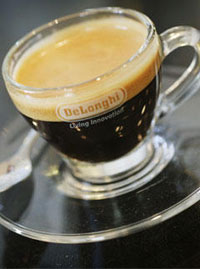FDA Wants to Ban Caffeine in Alcoholic Beverages
The Food and Drug Administration has notified about 30 manufacturers of alcoholic beverages containing added caffeine that it intends to take a look at their products.

The question is not only if these products -- such as 24/7 made by Mix Master Beverage Co. and Joose by United Brands Co. -- are safe, but also whether it is even legal to add caffeine to such drinks, the agency says.
One study done last year found usage to be nearly 30 percent among college students, in whom the beverages are associated with "heavy episodic drinking and episodes of weekly drunkenness."
It also found people who drink caffeinated alcoholic beverages are more likely to have alcohol-related problems.
"The increasing popularity of consumption of caffeinated alcoholic beverages by college students and reports of potential health and safety issues necessitates that we look seriously at the scientific evidence as soon as possible," said Dr. Joshua Sharfstein, principal deputy commissioner of food and drugs, CNN reports.
According to The Wall Street Journal, on Friday, the FDA sent letters to nearly 30 companies, giving them 30 days to provide evidence that their drinks don't pose health or safety risks. The FDA hasn't approved the use of caffeine in alcoholic beverages, and companies might have to show that experts generally think mixing caffeine and alcohol is safe for consumers.
The fast-growing segment includes United Brands Co.'s Joose, and Phusion Projects LLC's Four Loko, both flavored malt beverages. "We are taking a look at the legal basis for the marketing of the products," Joshua Sharfstein, the FDA's principal deputy commissioner, told reporters.
A United Brands spokesman said it hadn't received the FDA letter and declined to comment. Phusion Projects didn't respond to requests for comment.
A group of five scientists who study college students' drinking habits also wrote a letter saying there was no evidence to support the claim that caffeine was "generally recognized as safe" for use in alcohol drinks.
"Being wide awake and drunk at the same time increases the risk of engaging in several forms of violent or other high-risk physical behaviors that can cause injury," wrote the scientists, who come from such institutions as Johns Hopkins University School of Medicine and Wake Forest University School of Medicine.
The FDA only approves caffeine as an additive for soft drinks and has not approved its use in alcoholic beverages, Reuters informs.
Subscribe to Pravda.Ru Telegram channel, Facebook, RSS!


